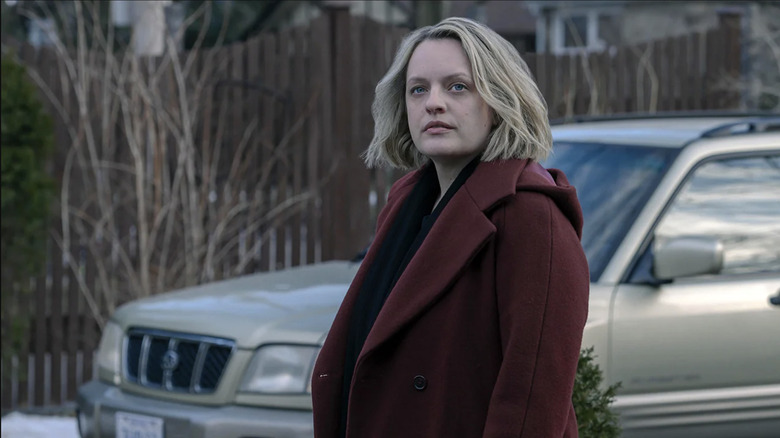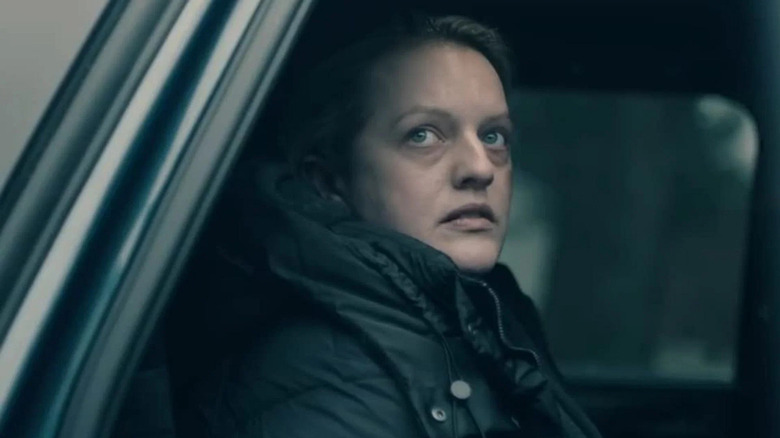The Handmaid's Tale Showrunner Says TV Has Failed To Prepare Audiences For Real Life [Exclusive]
Singer-songwriter Salem Ilese went viral on TikTok in 2020 for the song "Mad at Disney," which speaks from the perspective of a young woman who grew up watching Disney movies and realized as an adult that love, relationships, and learning about the world aren't always a fairytale. Just this weekend, John Oliver delivered a scathing critique on his show "Last Week Tonight" of the way "Law & Order" and other Dick Wolf projects have served as copaganda for the American masses. The entertainment we consume does have an impact on the way we relate to the world around us, and unfortunately, without a solid grasp on media literacy, entertainment often becomes a substitute for education.
/Film's Fatemeh Mirjalili spoke with "The Handmaid's Tale" showrunner and director Bruce Miller for an upcoming interview, who has also taken note of this specific phenomenon. Since the show's debut, the visual elements of "The Handmaid's Tale" have evolved into shorthand language for activists. Back in 2017, protestors were descending on Capitol Hill to combat restrictive and oppressive legislations, hoping that people would see the error in their ways and stop passing laws that inch humanity closer and closer to the dystopian world of Gilead as portrayed on the show and Margaret Atwood's book.
Unfortunately, Miller believes that TV has given people unrealistic expectations of how changes are made, and more importantly, how people change over time.
'It's not how the world works'
"The Handmaid's Tale" has been anchored by the performance of Elisabeth Moss as June, a woman who was captured and forced to serve as a Handmaid to powerful Commanders of Gilead as she was still able to bear children. Her experiences have been harrowing, to say the least, and the show has deeply explored the way June processes the traumatic events she's survived.
"I think the big story we're trying to tell is the story about trauma — that it doesn't go away so fast and it's a long process, a life-long process," Miller said. "And I think, in some ways, television has done a sh***y job preparing people for the world because every problem gets solved so cleanly, or someone who used to be a bad person becomes a good person and then you can trust them forever." A show like "The Handmaid's Tale" is unflinching and unforgiving, unafraid to acknowledge, as Miller tells us, that "It's not the way the world works."
Miller also told us that he believes in the case of June and her story, the creative team behind "The Handmaid's Tale" has "a responsibility to the people who have trauma in their lives for real — like most people do have some sort of trauma — to show what it's like inside of June's head for that process."
Processing and overcoming trauma is long, arduous, but necessary work, and it's important that people realize there's no magic wand to make it all disappear after an hour-long episode. Just as we see in "The Handmaid's Tale," overcoming these emotional hurdles doesn't happen in an instant and it's completely normal and valid to take the time needed to get there.

